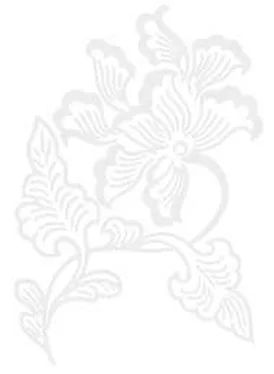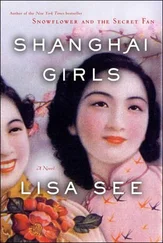Lisa See - Peony in Love
Здесь есть возможность читать онлайн «Lisa See - Peony in Love» весь текст электронной книги совершенно бесплатно (целиком полную версию без сокращений). В некоторых случаях можно слушать аудио, скачать через торрент в формате fb2 и присутствует краткое содержание. Жанр: Старинная литература, на английском языке. Описание произведения, (предисловие) а так же отзывы посетителей доступны на портале библиотеки ЛибКат.
- Название:Peony in Love
- Автор:
- Жанр:
- Год:неизвестен
- ISBN:нет данных
- Рейтинг книги:4 / 5. Голосов: 1
-
Избранное:Добавить в избранное
- Отзывы:
-
Ваша оценка:
- 80
- 1
- 2
- 3
- 4
- 5
Peony in Love: краткое содержание, описание и аннотация
Предлагаем к чтению аннотацию, описание, краткое содержание или предисловие (зависит от того, что написал сам автор книги «Peony in Love»). Если вы не нашли необходимую информацию о книге — напишите в комментариях, мы постараемся отыскать её.
Peony in Love — читать онлайн бесплатно полную книгу (весь текст) целиком
Ниже представлен текст книги, разбитый по страницам. Система сохранения места последней прочитанной страницы, позволяет с удобством читать онлайн бесплатно книгу «Peony in Love», без необходимости каждый раз заново искать на чём Вы остановились. Поставьте закладку, и сможете в любой момент перейти на страницу, на которой закончили чтение.
Интервал:
Закладка:
I had heard the term before, but I didn’t want to admit that I didn’t fully understand what it meant.
“My family was from Yangzhou, where your grandmother died,” she went on. “Like so many families, mine suffered greatly. The old and ugly women were massacred along with the men. Women like my mother were sold like salted fish—in sacks, by weight. My mother’s new owner was an enterprising man. I was the fourth daughter to be sold. Since then I have been like a leaf in the wind.”
I listened.
“The thin-horse trader bound my feet and taught me to read, sing, embroider, and play the flute,” she continued. “In this way my life was not unlike yours, but in other ways it was very different. Those people grew girls on their land instead of crops.” She lowered her head and glanced at me furtively. “Spring came, autumn went. They could have kept me until I was old enough to sell into pleasure, but inflation and a glut on the market lowered prices. They had to unload some of the crop. One day, they dressed me in red, painted my face white, and took me to market. Your father examined my teeth; he held my feet in his hands; he patted my body.”
“He wouldn’t do that!”
“He did, and I was ashamed. He bought me for a few bolts of cloth.
These last years I hoped that your father might take me as his fourth concubine and that I might bring him the son your mother and the others can’t give him.”
The thought curdled my stomach.
“Today I go to my third owner,” she said matter-of-factly. “Your father has sold me for pork and cash. It’s a good deal, and he’s happy.”
Sold for pork? I was to be married in exchange for bride-price gifts, which included pigs. Perhaps Willow and I were not so different after all.
Neither of us had any say in our futures.
“I’m still young,” Willow said. “I may change hands again if I don’t bear a son or I stop making my master smile. The thin-horse trader taught me that buying a concubine adds to a man’s garden. Some trees bear fruit, some give shade, some give pleasure to the eye. I’m hopeful that I will not be weeded out and sold again.”
“You’re like Xiaoqing,” I said in wonder.
( 6 9 )
“I don’t have her beauty or talent, but I hope my future is better than hers and that in my next life I will not be born in Yangzhou.”
This was my first true understanding that my existence in our garden villa was not at all like that of girls in the outside world. Terrifying and horrible things happened out there. This had been kept a secret from me, and I was grateful but curious. My grandmother had been out there and now she was worshipped as a martyr. Willow had come from out there and her future was as set as my own: Make the man in her life happy, bear him sons, and excel in the Four Virtues.
“So I’m going,” Willow said abruptly, as she got up off her knees.
“Wait.” I stood, crossed to a cabinet, and opened a drawer. I fingered my jewelry and hair ornaments, looking for a piece that would be neither too ordinary nor too extravagant. I settled on a hairpin of blue kingfisher feathers shaped into a soaring phoenix, its tail flowing delicately behind it.
I placed it in Willow’s hand.
“To wear when you meet your new owner.”
“Thank you,” she said, and with that she left the room.
Not two minutes later, Shao, my old wet nurse and our head amah, entered. “I will be taking care of you from now on.”
I could not have received worse news.
my moth e r had plans for me, and Shao, who now lived in my room, had to make sure they were fulfilled. “Tong—Same—you will prepare for your wedding, nothing else,” Shao announced, and she meant it.
Hearing my new name, I had an inward shiver of despair. My place in the world was set by label and designation; through my name I was already changing from a daughter into a wife and daughter-in-law.
For the next seven weeks, Shao brought my meals, but my stomach had become an abyss of anguish and I ignored the food or stubbornly pushed it away. As time passed, my body changed. My skirts started to hang on my hips instead of my waist, and my tunics swung loose and free.
My mother never visited.
“She’s disappointed in you,” Shao reminded me every day. “How could you have come from her body? I tell her a bad daughter is a typical daughter.”
I was book-smart but no match for my mother. Her job was to control me and see me married out to a good family. Although she still did not ( 7 0 )
want to see my face, she sent emissaries. Every morning, Third Aunt arrived just before dawn to teach me to embroider properly.
“No more sloppy or clumsy stitches allowed,” she said, her voice tinkling like white carnelian. If I made a mistake, she made me pull out the stitches and start again. With no distractions and Third Aunt’s exacting instruction, I learned. And with every stitch, I ached for my poet.
As soon as she swept out of the room, Shao let in Second Aunt, who drilled me on my zither. Despite her indulgent reputation, she was very strict with me. If I erred in my plucking, she struck my fingers with a stalk of green bamboo. My zither playing improved surprisingly quickly, becoming clear and limpid. I imagined each note floating out the window and traveling across the lake to my poet’s home, where the music would make him think of me as I was thinking of him.
In the late afternoons, as the colors of evening began to appear in the west, Fourth Aunt, widowed and childless, came to teach me the purpose of clouds and rain.
“A woman’s greatest strength is to give birth to sons,” Fourth Aunt instructed. “It gives a woman power and it can take it away. If you give your husband a son, you might keep him from entering the pleasure quarters on the lake or bringing in concubines. Remember, a woman’s purity grows through seclusion. This is why you’re in here.”
I listened hard to what she said, but she told me nothing about what to expect on my wedding night or how I could participate in clouds and rain with someone I didn’t love, like, or know. I relentlessly conjured the hours leading up to it: my mother, aunts, and cousins washing and dressing me in my wedding clothes; the five grains, the piece of pork, and the pig heart they’d hide in the underskirt I’d wear next to my skin; the tears shed by everyone as I was led outside to the palanquin; stepping over the Wu family threshold and letting that underskirt with its hidden treasures drop to the floor to ensure the fast and easy births of sons; and finally being led into the wedding chamber. These thoughts, which had once filled me with happy expectation, now made me want to run away. That I had no way to escape my fate made me feel even worse.
After dinner, Fifth Aunt took time from the nightly gathering in the women’s chambers to improve my calligraphy. “Writing is a creation of the outer world of men,” she said. “It is by its nature a public act—something that we, as women, should avoid—but you need to learn it so that one day you can help your son with his studies.”
( 7 1 )
We worked through sheet after sheet of paper, copying poems from the Book of Songs, doing drills from Pictures of Battle Formations of the Brush, and limning lessons from the Women’s Four-Character Classic until my fingers were stained with ink.
Apart from perfecting my brushstrokes, Fifth Aunt’s lessons were pure and simple: “The best you can do is take the ancients as your teachers. Poetry is on earth to make you serene, not corrupt your mind, thoughts, or emotions. Make yourself presentable, speak gently but don’t say anything, wash yourself diligently and frequently, and keep a harmonious mind. In this way you will wear your virtue on your face.”
Читать дальшеИнтервал:
Закладка:
Похожие книги на «Peony in Love»
Представляем Вашему вниманию похожие книги на «Peony in Love» списком для выбора. Мы отобрали схожую по названию и смыслу литературу в надежде предоставить читателям больше вариантов отыскать новые, интересные, ещё непрочитанные произведения.
Обсуждение, отзывы о книге «Peony in Love» и просто собственные мнения читателей. Оставьте ваши комментарии, напишите, что Вы думаете о произведении, его смысле или главных героях. Укажите что конкретно понравилось, а что нет, и почему Вы так считаете.












